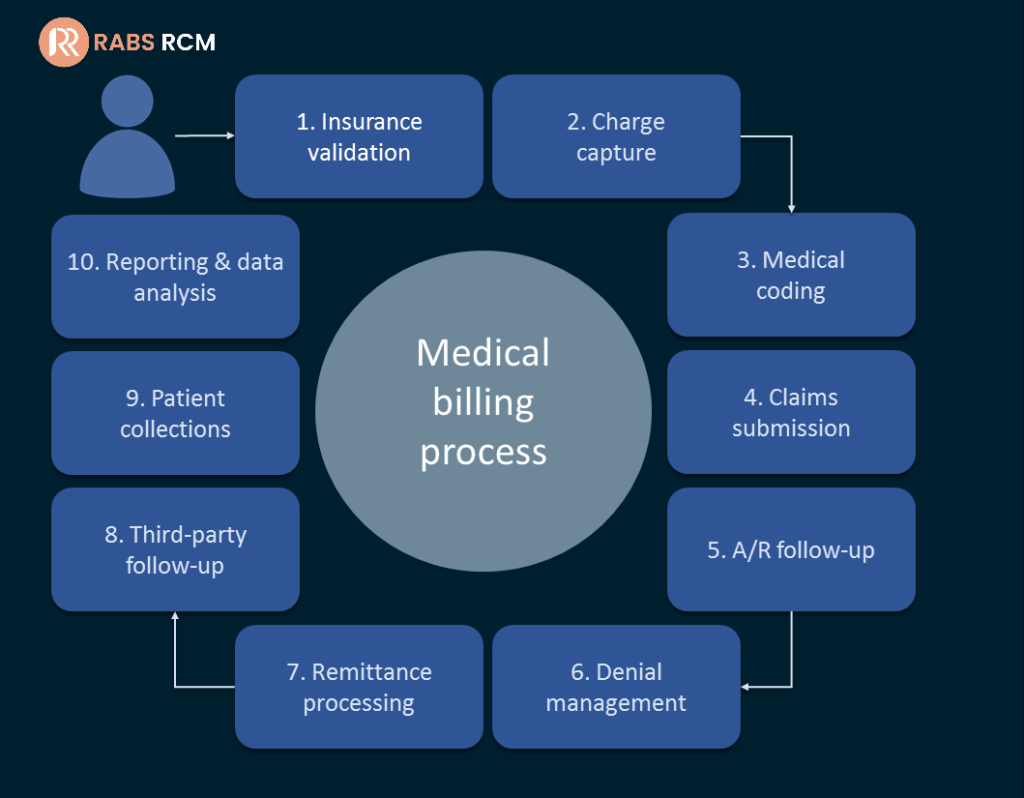
Medical Billing Processing
Medical billing is the process of submitting and following up on claims with health insurance companies to receive payment for services rendered by a healthcare provider. It is a crucial aspect of running a healthcare practice, as it ensures that the practice receives reimbursement for its services. Medical billing can be a complex and time-consuming process, but it is essential for the financial success of a healthcare practice.
Use of code services
The first step in medical billing is to correctly code the services provided using codes such as ICD-10 and CPT codes. These codes are used to accurately describe the services provided and are essential for insurance companies to process claims correctly. The healthcare provider must also have a thorough understanding of insurance plans and reimbursement policies to ensure that claims are submitted correctly and that the practice receives fair reimbursement for services provided.
Submission of claims
Once the claims are submitted, the medical billing process involves following up on the status of the claims and resolving any issues that may arise. This may include appeals and negotiations with insurance companies if a claim is denied or the reimbursement amount is lower than expected. It is important to have a good understanding of the medical billing process to ensure that claims are submitted correctly and that the practice receives fair reimbursement for services provided.
Working on Medical Billing
Medical billing can also involve working with patient billing and collections. This includes providing patients with detailed explanations of their bills, answering any questions they may have, and working with them to set up payment plans if necessary. It is important to maintain good communication with patients throughout the billing process to ensure that they understand their bills and can make payments promptly.
Traditional Billing
In addition to traditional billing, there is also the trend of electronic billing and electronic health records. This provides a more efficient and accurate way to manage the billing process and enables healthcare providers to easily share patient information with other healthcare providers and insurance companies.
Conclusion
In conclusion, Medical billing is a crucial aspect of running a healthcare practice. It involves using codes to accurately describe the services provided, knowledge of insurance plans and reimbursement policies, and the ability to effectively follow up on and resolve any issues that may arise with claims. It also involves working with patient billing and collections to ensure that patients understand their bills and can make payments promptly. It is important to have a good understanding of the medical billing process to ensure that claims are submitted correctly and that the practice receives fair reimbursement for services provided.

- Our seamless and streamlined efforts, experience, as well as commitment to our clients, all come together to provide both you and your patients with a remarkable experience to remember.
Contact Us
- 2612 62nd St NW Rochester MN 55901 (USA)
- (507) 262-4566
- info@rabs-rcm.com
Copyright © 2022 Rabs-RCM. All Rights Reserved.

